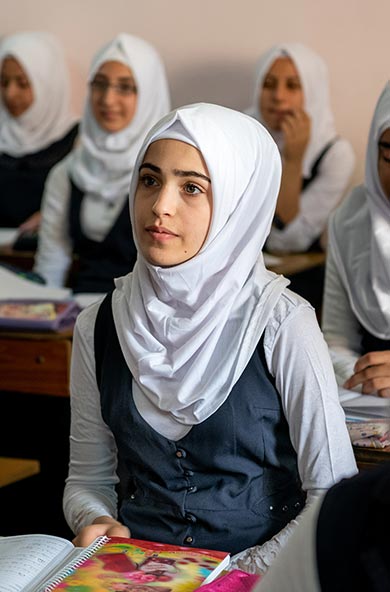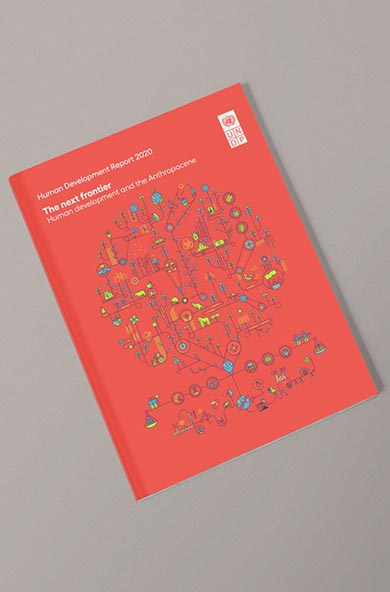The Villages of Tomorrow
What is the project about?
Despite rapid technological developments enable great social, economic, and environmental opportunities, uneven distribution of digital tools and the skills causes unequal opportunities or the digital divide. As the Covid-19 pandemic increased the utilization of digital tools, the level of the digital divide increased accordingly. Especially, the rural population and the vulnerable groups including women faced this digital divide even more. Regardless of the cause, international and intranational migrations lead to underutilization of agricultural land and lesser production, conservancy of intangible cultural heritages, and rural poverty. As a prominent cause of migration, unemployment rates, especially for the youth, have been increasing.
E-commerce is rapidly developing and increasing its share within retail sales and in many countries this share has doubled in a few years. In Türkiye, half of the e-commerce activities are taking place in three main metropolises, and national policy documents prioritize expanding volume and increasing inclusiveness of the digital trade.
To respond to these challenges and get back on track for the 2030 agenda; global, national, and local initiatives are being undertaken and policies are designed and implemented. The project, Villages of Tomorrow, is designed by the United Nations Development Programme (UNDP) and Trendyol within this framework to reduce inequalities and develop gender-sensitive digitalization in the rural area. The project focuses on enhancing the utilization of e-commerce platforms and developing pilot rural settlements as holistic and sustainable hubs.
What has been the situation?
Data-driven digital economy has been increasing imbalances. The digital economy related inequalities are caused by several issues including the inequal levels of connectedness and technical capabilities. In terms of levels of connectedness, differences in availability of the internet infrastructure and connection speed between regions and countries causes digital divide in spatial manner. Further, within countries, urban and rural areas possess the same spatial digital divide (UNCTAD, Digital Economy Report 2021).
According to the UN, developing countries need to position themselves in data-driven digital economy. Noting e-commerce is a high value-added and emerging industry, global e-commerce platforms with higher access to data have competitive advantage. The largest digital platforms have been investing to global data value chain including data collection through user interfaces, data transmission, data storage and data analysis. This process would cause all e-commerce related data to be owned by such companies. The developing countries face the risk of being mere providers of raw data to such platforms. In this respect, the governments of developing countries should be involved more in data processes.
Differences in socio-economic development levels across Türkiye is considerably high between urban and rural areas. The latest socio-economic development index (SEGE) in 2022 shows that development levels rapidly fall as the district becomes rural. This issue is shown to be almost the same across the country regardless of location. Fourth, fifth and sixth level regions are predominantly rural, where net migration is negative, and number of enterprises are low.
Rural settlements have significantly lower share of e-commerce and establishment of social facilities is seen more important than economic facilities in rural settlements. According to the report on Field Study on Rural Settlements under YERSİS project of the Ministry of Industry and Technology, the share of product sale is lower than 0.5% and most of the products are being marketed via wholesalers and marketplaces. The same report indicates that, 40% of the residents of rural settlements seek social facilities rather than economic facilities such as production. The share of rural settlements with mobile internet connection is calculated as 68.46%, while broadband connection remains at 46.27%.
What is our mission?
Global policies focus more than ever to respond to digital divide. Two main causes of digital divide are reported as the lack of connectedness and appropriate skills within the UNDP Digital Strategy. The United Nations underlined the target of increase digital connectivity at the UN Secretary-General’s High-level Panel on Digital Cooperation in 2020. The main outcome of this process, the report of The Age of Digital Interdependence underlines importance of collaboration among public and private sectors to ensure digital inclusion. UNDP is taking a leading role in increasing digital skills in disadvantaged regions and vulnerable groups of the community by utilizing various resources including the private sector. UNDP will utilize lessons learned and experiences of completed projects and ensure cooperation with the ongoing projects for the success of the project.
How are we doing this?
The project will be a pioneer action in responding inequalities, challenges, problems, and opportunities of rural settlements by increasing the levels of digitalization. To ensure effectiveness, the project is designed as the first phase of a long-term perspective for smart, sustainable and inclusive development in rural settlements by implementing holistic actions on piloted villages.
Main target groups of the project are planned for two different audiences: all community members of piloted villages focusing on women and youth and extended stakeholders from digital value chains including entrepreneurs, producers, employees, service providers, public servants, representatives from civil society and researchers. The community members of piloted rural settlements will be particularly on the women and the young, including children at early ages as a response to gender equality and digital divide. The young people and the children are deemed important as tendency to digital technologies develops at early ages.
The project will be initiated in three pilot villages in Adana, Diyarbakir and Izmir provinces with an aim to eventually reach a total of ten villages over five years. Digitalization Hubs will be established in collaboration with the local partner in pilot villages. These hubs will be designed as core of the project activities as well as a meeting point of targeted stakeholders and equipped with the necessary technological equipment and furnishing. For each village, three focus products will be selected for their development potential for the first year of the project. At least nine local products will be chosen and capacity development activities including workshops, one-on-one consultancies, awareness raising, smart agriculture demonstrations and trainings on e-commerce, e-export, product development, marketing, branding, packaging, finance, quality, etc. will be provided.
Adopting the change management logic, the strategic goals, and the principles the project aims to foster sustainable and inclusive development in rural settlements by ensuring efficient utilization of digital tools and investing in the future by increasing capacities of the young, the women and individuals from vulnerable groups. In line with this purpose, three outputs are expected to be achieved:
- Digital village prototypes are designed and initiated in rural regions,
- Digital agenda and inclusive models are designed and implemented for e-commerce,
- Awareness is raised, and capacities are developed for institutionalization, sustainable product development and digital marketing.
How will Türkiye Benefit?
Pilot villages will in Adana, Diyarbakir and Izmir provinces and a network of digital villages will be established. The project will enable a piloted action for digitalizing rural settlements and provide a case study for local authorities and public institutions. Digital hubs in targeted villages will make digital technologies accessible for all. A set of criteria and roadmap guideline will be prepared for establishing such village s. It is foreseen that the share of new e-commerce entrepreneurs in the pilot sites will increase by 60 percent by the time the project is completed. Moreover, a white paper will be prepared as a policy recommendation tool for the Government. The agenda among all parts of society for rural development with the help of digital technology and skills will be highlighted with comprehensive dialogue and awareness rising activities.

 Locations
Locations





















